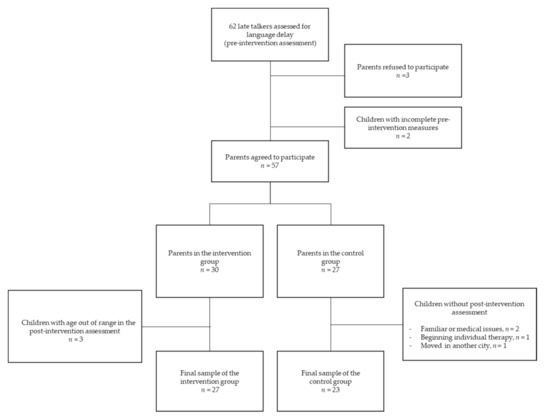This article is available in: HTMLPDF
Another scale used in some of the studies included in this review is the Canadian Problem Gambling Index (CPGI). This was launched in 2001 and has been used to measure the prevalence of problem gambling in the general population in Canada (as well as being used in other countries). We investigate the extent to which problem gambling in a recent South African sample, as measured by the Problem Gambling Severity Index (PGSI), is comorbid with depression, anxiety and substance abuse. Data are from the 2010 South African National Urban Prevalence Study of Gambling Behavior. A representative sample of the urban adult population in South Africa (N = 3,000). The Canadian Problem Gambling Index (CPGI: Ferris & Wynne, 2001) The CPGI was constructed following an intensive literature review by the authors that aimed to conceptualize problem gambling and to develop a more meaningful measure of problem gambling for use in general population surveys. Measuring gambling and problem gambling in Alberta using the Canadian Problem Gambling Index (CPGI): Final report. Have you ever gone to anyone for help about your gambling? Have you ever been arrested for a gambling related activity? Have you been preoccupied during the past 12 months with thinking of ways to get money for gambling or reliving past gambling experiences (e.g., handicapping, selecting a.
Inconsistency between concept and measurement: The Canadian Problem Gambling Index (CPGI)
Abstract
'Problem' and 'pathological' gambling represent core concepts that guide gambling research today. However, divergent interpretation of the relation between these terms is continually misguiding the measurement and interpretation of empirical data, and may cumulatively lead to larger-scale problems of conclusion and policy formulation over the next decade. This paper first attempts to unravel the conceptual muddle by outlining the trajectory of the usage of the two terms, from a period where both were dimensionally similar concepts firmly situated in the addiction model to a more recent conception, which takes the view that problem gambling is distinct and properly measured by focusing on the problems that excessive gambling may cause to individuals, families, and communities. We then aim to analyse and criticize the Canadian Problem Gambling Index (CPGI) as a clear example of the confusion of paradigms, an index that defines problem gambling in the newer, problem-centred model, but continues to measure it with items reflecting the older, addiction-centred model. We argue that results obtained using the CPGI, much like those of its predecessors, will not adequately capture the notion of harm that underpins current definitions of problem gambling.

Keywords


DOI: http://dx.doi.org/10.4309/jgi.2008.22.2
Copyright © 2020 | Centre for Addiction and Mental Health
Editor-in-chief: Nigel E. Turner, Ph.D.
Managing Editor:Vivien Rekkas, Ph.D. (contact)
Overview
The Canadian Problem Gambling Index (CPGI) is a 31-item measure used for screening purposes to determine whether a person in the general population may have a gambling problem. The CPGI asks questions about an individual's gambling habits from four categories:
- An individual's involvement in gambling;
- Problem gambling behaviour;
- The consequences they (or others) experience as a result of his/her problem gambling; and
- Correlates of problem gambling.
The goal of the CPGI was to create a more meaningful measure of problem gambling to use in general population surveys that includes indicators of the social and environmental context. Best day to play slots at casinos. Indeed, the CPGI was tested and validated in a general population and was able to accurately measure who was a problem gambler and who was not.
Key Points
Canadian Problem Gambling Index Italiano Online
The CPGI is used in Canada, Australia, United Kingdom, Norway, Iceland, and Tasmania. Like any instrument, the CPGI is based on a specific definition of harmful gambling. Today many researchers have different opinions on the definition of harmful gambling. Del lago resort and casino new york. In order to fit these new definitions researchers modify, add, or remove questions, which may affect the reliability of the questionnaire. Regardless, the CPGI is still one of the most used instruments to measure harmful gambling in the general population.
References
Canadian Problem Gambling Index Italiano 2020
McCready, J., & Adlaf, E. (2006). Performance and enhancement of the Canadian Problem Gambling Index (CPGI): Report and recommendations. Prepared for: Inter-provincial Funding Partners for Research Into Problem Gambling.
Canadian Problem Gambling Index Italiano Today
Svetieva, E., & Walker, M. (2008). Inconsistency between concept and measurement: the Canadian Problem Gambling Index (CPGI). Journal of Gambling Issues, 157-173.

Keywords
DOI: http://dx.doi.org/10.4309/jgi.2008.22.2
Copyright © 2020 | Centre for Addiction and Mental Health
Editor-in-chief: Nigel E. Turner, Ph.D.
Managing Editor:Vivien Rekkas, Ph.D. (contact)
Overview
The Canadian Problem Gambling Index (CPGI) is a 31-item measure used for screening purposes to determine whether a person in the general population may have a gambling problem. The CPGI asks questions about an individual's gambling habits from four categories:
- An individual's involvement in gambling;
- Problem gambling behaviour;
- The consequences they (or others) experience as a result of his/her problem gambling; and
- Correlates of problem gambling.
The goal of the CPGI was to create a more meaningful measure of problem gambling to use in general population surveys that includes indicators of the social and environmental context. Best day to play slots at casinos. Indeed, the CPGI was tested and validated in a general population and was able to accurately measure who was a problem gambler and who was not.
Key Points
Canadian Problem Gambling Index Italiano Online
The CPGI is used in Canada, Australia, United Kingdom, Norway, Iceland, and Tasmania. Like any instrument, the CPGI is based on a specific definition of harmful gambling. Today many researchers have different opinions on the definition of harmful gambling. Del lago resort and casino new york. In order to fit these new definitions researchers modify, add, or remove questions, which may affect the reliability of the questionnaire. Regardless, the CPGI is still one of the most used instruments to measure harmful gambling in the general population.
References
Canadian Problem Gambling Index Italiano 2020
McCready, J., & Adlaf, E. (2006). Performance and enhancement of the Canadian Problem Gambling Index (CPGI): Report and recommendations. Prepared for: Inter-provincial Funding Partners for Research Into Problem Gambling.
Canadian Problem Gambling Index Italiano Today
Svetieva, E., & Walker, M. (2008). Inconsistency between concept and measurement: the Canadian Problem Gambling Index (CPGI). Journal of Gambling Issues, 157-173.
Not Killing Jamie. Black Jack Randall had plenty of opportunities to kill Jamie but he never did it.